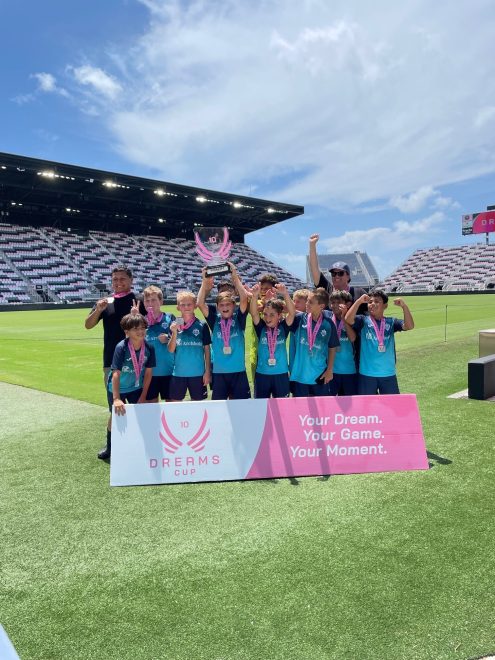Whigham FFA gets a grant to grow its project
Published 3:47 pm Monday, March 18, 2019
WHIGHAM — The Future Farmers of America chapter at Whigham Elementary School was selected as the recipient of a $2,500 grant from America’s Farmers Grow Communities to expand its horticulture project last week.
Whigham farmer Sammy Perkins was selected by Grow Communities to decide where the grant should be donated.
Perkins, Principal Mark Willis, FFA chapter president Tanner Norton and agriculture teacher and FFA advisor Tracy Champagne were present to receive the grant check March 7.
Champagne said the donation will be used to purchase a shade house to expand the school’s horticulture area, which she hoped would be installed within the next 50 days.
“Not all plants grow in direct sunlight,” Champagne said. “This allows us to grow more varieties of plants that require partial or full shade to expand the different types of plants that we can offer.”
Champagne said plants that will be grown under the shade house include ferns and hanging plants as well as certain types of landscape plants.
The Grow Communities program is sponsored by the Monsanto Fund, a philanthropic arm of Bayer, and partners with local farmers each year to provide grants to local nonprofits.
“Farmers are invested in their communities, they root for their neighbors and they know when and where there is a need,” said Al Mitchell, vice president of corporate engagement at Bayer. “Farmers are one of America’s best resources, which is why Grow Communities partners with them to direct donations to the organizations they are passionate about and that make a positive impact and a better life in communities.”
According to a press release, Grow Communities partners with farmers to provide “the opportunity to support and give back to nonprofit organizations they care about in their local communities by enrolling for a chance to direct a $2,500 donation to a nonprofit of their choice.”
The press release states the program has donated more than $33 million to more than 8,000 nonprofits across the rural U.S. since 2010.
Champagne said the expansion to Whigham School’s horticulture area will also eventually house an aquaponic system, which she said is a sustainable option that represents the direction large-scale agriculture is headed.
A continuous supply of hydroponically-grown fresh lettuce and fish, most likely tilapia, will be raised inside the aquaponic system.
Fish inside the aquaponic system will be raised normally, but their presence will help fertilize the water where the lettuce is grown without the use of soil.
“You’re growing your protein sources as well as your vegetable sources all in one location,” Champagne said.
The food grown in the aquaponic system, which Champagne said she hoped would be available by the next school year, would be used in the school’s cafeteria to provide meals for students.
Any excess food from the aquaponic system will be offered to other school cafeterias in Grady County.
The FFA advisor said the school will have to raise additional funds at a later date to purchase the aquaponic system, which she said costs nearly $6,000.
“We’re hoping to have it in place sometime next school year,’ Champagne said, “but it’s going to take some large-scale fundraising or some partnerships or grants or sponsors that will help us to get that whole setup.”





